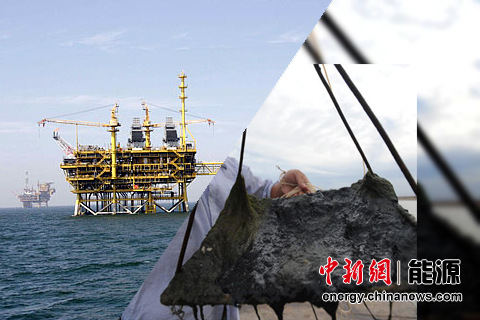What makes a public interest plaintiff?
- By Li Xiao
 0 Comment(s)
0 Comment(s) Print
Print E-mail
China.org.cn, November 8, 2011
E-mail
China.org.cn, November 8, 2011
The recent oil leak case at Bohai Bay has stirred heated discussion among Chinese legislators and law experts on the issue of public interest litigation. The focus is: who has the right to file lawsuits on behalf of the public when their interests are violated?
|
|
| At the end of October, fishermen affected by the ConocoPhillips oil spill in Bohai Bay applied for an administrative review by the SOA and Ministry of Agriculture. |
Under the current civil procedure law, plaintiffs are restricted to citizens, corporations and organizations whose interests are directly related to the case. This, though, sets up legal barriers which prevent many social groups from filing lawsuits in the public interest.
After the ConocoPhillips oil spill, some individual citizens and social groups tried to sue the responsible party for environmental damage. However, their requests were turned down by the court.
"When pollution occurs in some place, we can only stand there and watch it happen because we are not recognized by the law as plaintiffs," said Ma Yong, a staff worker in the environmental law center of the All-China Environment Federation (ACEF), a non-governmental environmental organization in China.
On Oct. 28, 2011, the Standing Committee of the National People's Congress (NPC), China's top legislature, discussed a draft legal amendment which would enable related authorities and social groups to file public interest litigation over environmental pollution and food safety cases.
During the discussion, many legislators suggested that the draft should clearly define the "related authorities" which were entitled to file public interest suits.
Ren Maodong, a member of the NPC Standing Committee, said that departments of administration are often reluctant plaintiffs in public interest litigation, as many incidents occur as a result of their neglect of duty. In other cases, local protectionism and department protectionism play central roles.
In the recent oil leak case at Bohai Bay, the State Oceanic Administration (SOA) is expected to file litigation on behalf of the nation against the polluters under the Marine Environment Protection Law of China. The SOA declared that it would sue ConocoPhillips China for ecological compensation. However, nearly five months after the incident, there has been no news regarding the litigation.
With regard to those recognized as plaintiffs, some law experts believe that the term "related authorities" should also include departments of prosecution, considering the policy guidance function and deterrence effect of judicial authorities on both the public and government departments.
According to the amendment, social groups are considered as qualified plaintiffs to file public interest suits. Ma Yong explained that public interest litigation is often hard on individual victims, as the cases are usually long and drawn out and require multiple court appearances. Social groups, on the other hand, possess ample financial and technical resources, as well as a greater capacity to collect, preserve and make use of evidence, which makes them better plaintiffs.
Some legislators suggested that ordinary citizens whose interests were not directly related to the case could also be plaintiffs in public interest litigation, as this could be a good way for citizens to take part in governance.
Apart from environmental pollution and consumer rights infringement, which are currently mentioned in the amendment, market monopoly, damaging state-owned assets and illegally destroying cultural relics and historical sites should also be defined as violations of public interest, said Yan Yixin, a member of the NPC Standing Committee.
Recently, local judicial authorities in Guizhou, Yunnan, Hainan, Shandong and Jiangsu provinces have established an "environment court" to deal with environmental issues and accept public interest lawsuits which deal with environmental pollution.
Also, some local laws and regulations have been issued to allow non-governmental organizations to file public interest litigation. The All-China Environment Federation (ACEF) is one example of a non-governmental organization which took polluters to environment court in the cities of Guiyang and Wuxi and won the lawsuit, according to Ma Yong.
Some experts have said that empowering citizens and social groups to file public interest litigation is an important step for China to promote the rule of law.
This June, leaking oil was detected near Platform B of Penglai 19-3 oilfield in northern Bohai Bay, which was owned by the China National Offshore Oil Corporation (CNOOC) and operated by US-based oil giant ConocoPhillips.
In the middle of August, the State Oceanic Administration (SOA) said it would sue ConocoPhillips China for ecological compensation.
At the end of October, fishermen affected by the ConocoPhillips oil spill in Bohai Bay, fed up with the lack of progress on compensation, applied for an administrative review by the SOA and Ministry of Agriculture. They have asked ConocoPhillips and CNOOC to set up a compensation fund of no less than 3 billion yuan before the end of November.
According to the SOA's statement, small amounts of oil were still leaking near Platform C at the end of October. Meanwhile, ConocoPhillips reported a 59 percent year-on-year profit increase in the third quarter, while sales revenue of CNOOC increased 23.7 percent year-on-year in the third quarter of 2011.







Go to Forum >>0 Comment(s)